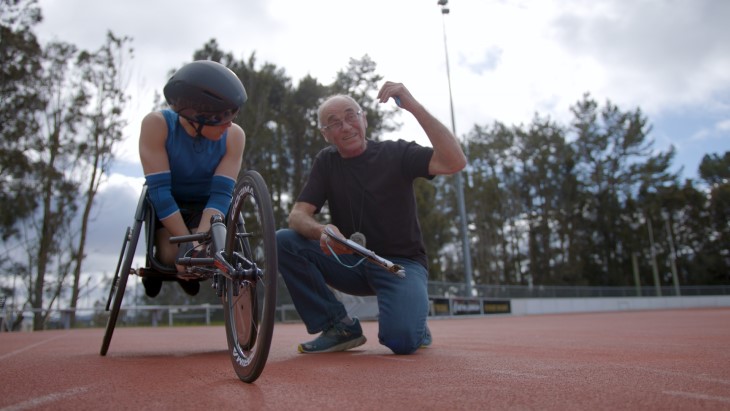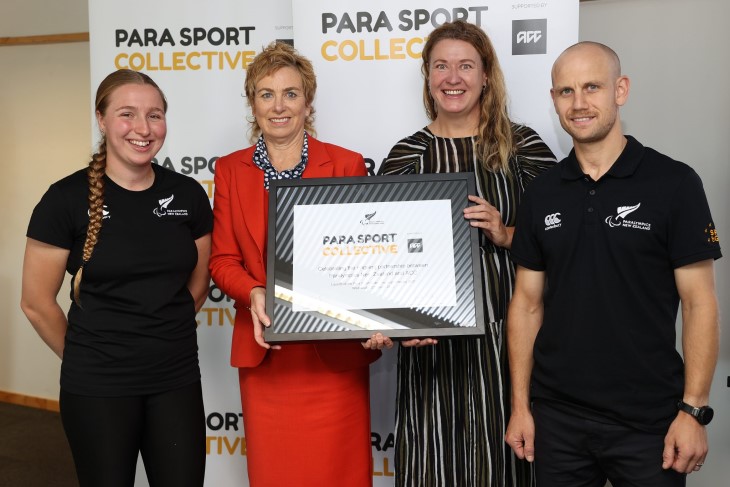John’s story: ‘The fitter you are, the healthier you’ll be’
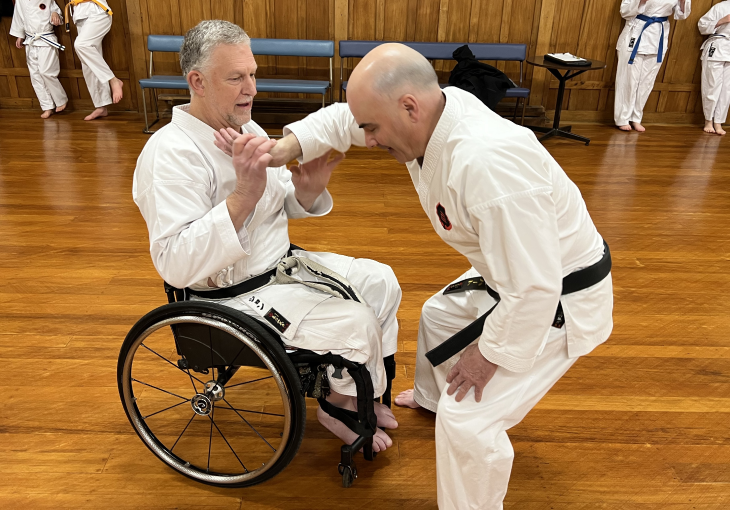
At 68, John Marrable is the oldest member of the ACC-supported Para Sport Collective’s second intake. But, as the table tennis player and karate black belt has proved, there’s no obstacle he can’t overcome.
The mantra John Marrable lives by is simple: “The fitter you are, the healthier you’ll be, which will lead to a better quality of life.”
It’s a motto that’s held him in good stead for almost 60 years.
In that time, he’s lived up to it in every way by competing in a range of sports – karate, table tennis, swimming, wheelchair basketball and athletics.
The genesis of his mantra was forged at Stoke Mandeville Hospital – the birthplace of the Paralympic movement – when rehabilitating from serious spinal injuries back in 1967.
During this ninth-month period at the UK-based hospital, he was introduced to Para sport and met Paralympics founder Sir Ludwig Guttman. Despite the serious nature of John’s injuries and facing life in a wheelchair, he looks back with gratitude on his time at Stoke Mandeville.
“For me, it was fantastic because it left me with a mantra for life that I try to live up to every day,” he says.
A Karate black belt and having represented New Zealand on several occasions at Para table tennis tournaments, he hopes his time on the ACC-supported Para Sport Collective can act as the catalyst to represent his country in table tennis once again.
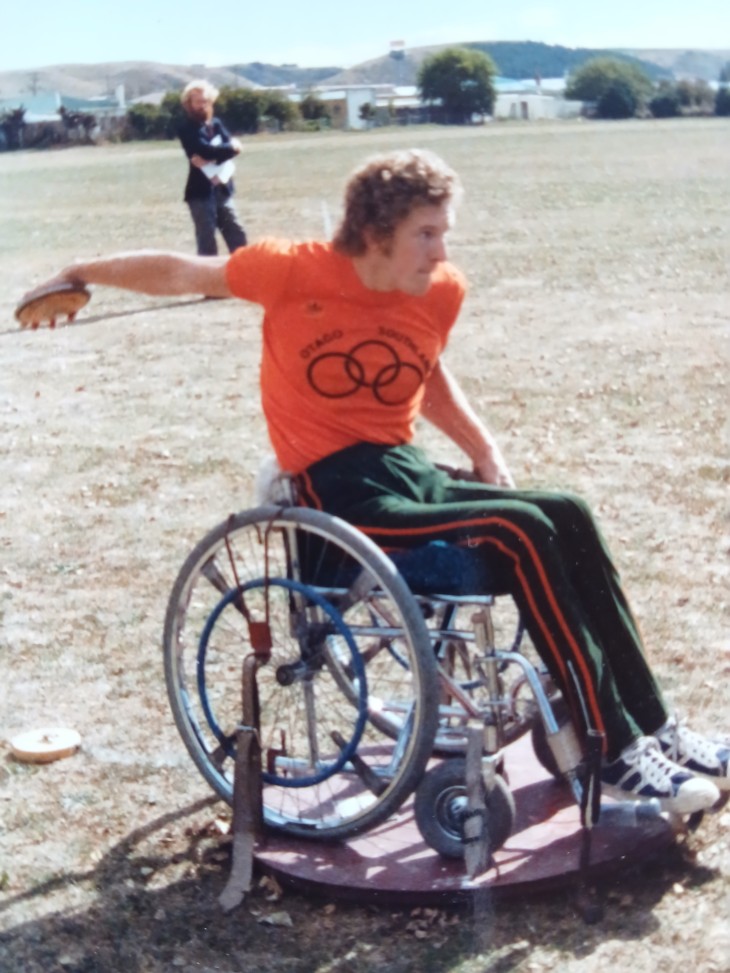
A life changed forever
Born and raised in Essex in southeast England, his life changed forever on holiday in Scotland as a 10-year-old.
He was warned by his mother to stay away from a cliff but John and his brother defied her and started to climb it. When a ledge gave way, John fell onto the rocks below and broke his spine.
“A man helped me walk to the golf course about 500 metres away,” he says.
“I remember lying on the ground and my mum rubbing my legs saying it would be all right. But then I couldn’t feel anything, it was like my legs were asleep. All I wanted to do was get up and run.”
After ten days at Edinburgh Hospital, he was then transferred to Stoke Mandeville Hospital in Buckinghamshire. Nobody had told him he would never walk again but he spent the first three months in bed before transitioning to a wheelchair.
In his first week at the world-renowned national spinal injuries centre, he’d already tried Para archery before later giving Para table tennis and Para swimming a go.
“I grew up very quickly because I was too tall for the children’s ward, so I was put on an adult’s ward,” he says.
“In some ways, I was very lucky to have my accident at ten. I was young enough to adapt and I was also introduced to sport so early.”
He laughs at his first memory of meeting Guttman, the diminutive German-born neurologist.
“I’d been a fast runner pre-accident and used to love pushing my wheelchair fast,” he recalls.
“I remember one day he was walking down the corridor and I nearly ran him over. He told me off for going too fast, telling me to slow down. It was funny that the father of Paralympic sport told me off for going too fast.”
John recalls Guttman had an unmistakable “aura and passion” for his work and he acknowledges the huge impact the Paralympic Games founder has played in his life.
“I’m privileged to have met him because it’s not something everyone can say. We owe him so much, I have so much to be thankful for because of him.”
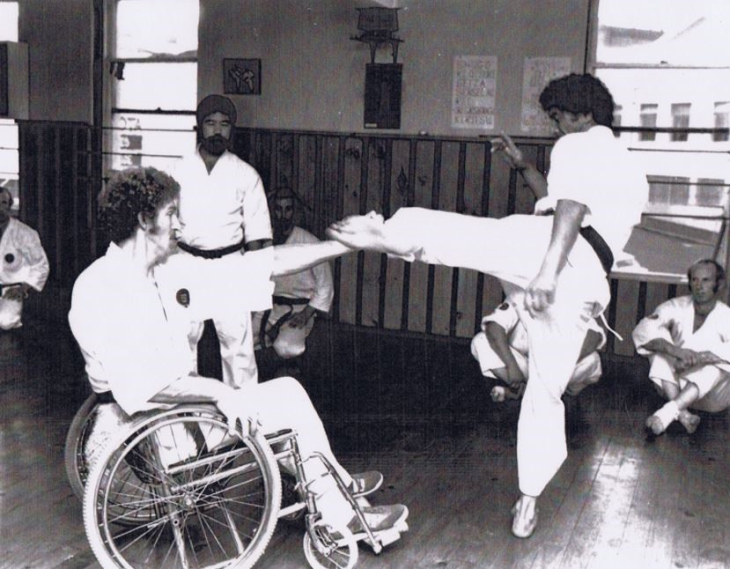
Multi-talented sportsman stars across codes
On his return home, John became fully immersed in sport. He played Para archery, Para table tennis and Para athletics through his local sports club, claiming host of medals and ribbons. He even played darts, snooker and bowls.
Raised to live independently by his father, he feels he was well equipped to cope with life as a wheelchair user and, after relocating with his family to Dunedin at 18, his first desire was to re-engage with sport.
His mother had reached out to Paralympian Leo Close OBE to ask about sporting opportunities in the region. Naturally strong, John gravitated towards javelin, shot put and discus, also competing in swimming, table tennis and wheelchair basketball.
A good learner and naturally athletic, he was selected for New Zealand to compete at the 1977 FESPIC Games in Australia. He competed in a range of sports and came home with gold, silver and bronze medals in swimming.
For more than a decade, wheelchair basketball became a staple part of his sporting week and in 1980 he became the first Paraplegic athlete in New Zealand to complete a marathon, pushing for four hours and 14 minutes in the Dunedin event.
Intrigued by martial arts since childhood, he took up karate in 1976. Rising to his current status as a seventh black belt, he’s found great joy in the pursuit and instructs at his own club, the Dunedin Institute of Traditional Karate. He also assists a friend to teach a disabled group a combination of karate, judo and ju-jitsu.
“As a senior instructor with a disability, I’ve found coaching the disabled group very rewarding. It gives them greater independence and confidence,” he says.
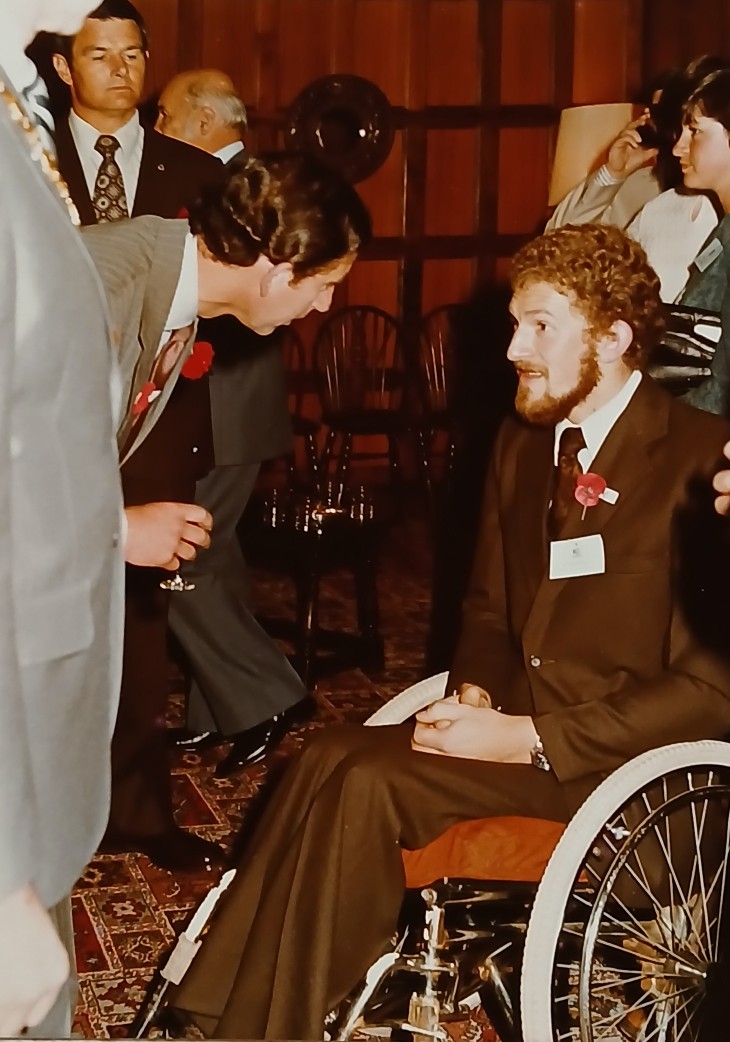
Chasing table tennis glory
A skiing accident in 2006 unfortunately brought an end to John’s wheelchair basketball career.
But, once the injury settled down around 16 years ago, he switched his attention back to table tennis, competing internationally for New Zealand at the 2011 Arafura Games in Darwin.
It was at this event where he met John Tuki, coach to Paralympian Matt Britz who competed at Paris 2024. The pair quickly formed a coach-athlete relationship.
“We had a shared interest in the martial arts, I loved his passion and desire, and we instantly clicked. He understood where I was coming from and my passion to achieve,” John says.
As John is Auckland-based, the pair communicate remotely while he also receives support from Ben Duffy, one of the leading South Island players and coaches, in Dunedin.
The impact of the Para Sport Collective
Nominated by Table Tennis New Zealand, John describes it as “an honour and a privilege” to be part of intake two of the Para Sport Collective and, despite his advancing years, he says the programme has proved a rich source of information.
“Learning about injury prevention, especially at my age, has been very important, while I’ve learned so much in so many areas. I still think I can be better on the table as the sharing of ideas with others has proved.” he says.
“I was talking to one of the Auckland table tennis players and told him how when using a table tennis robot, I set it up to shoot 300 balls and, if say 100 don’t hit the net, I would pick up those balls on the floor and use them for serving practice. Just little things like that and finding ways to be a smarter player make a difference.”
Keen to increase his training and seek more international competition, the 2025 Oceania Para Table Tennis Championships in Auckland remain a key target. Yet, whatever happens in the future, he hopes to stay wedded to sport for as long as possible.
“I’ve met so many fantastic people in sport who inspire me,” he explains.
“My hope is I can inspire others, whether it’s getting out of bed to play table tennis or read a book. It doesn’t matter, as long as it’s something mentally and physically stimulating.
“The fitter you are, the healthier you’ll be and the better quality of life you’ll have.”
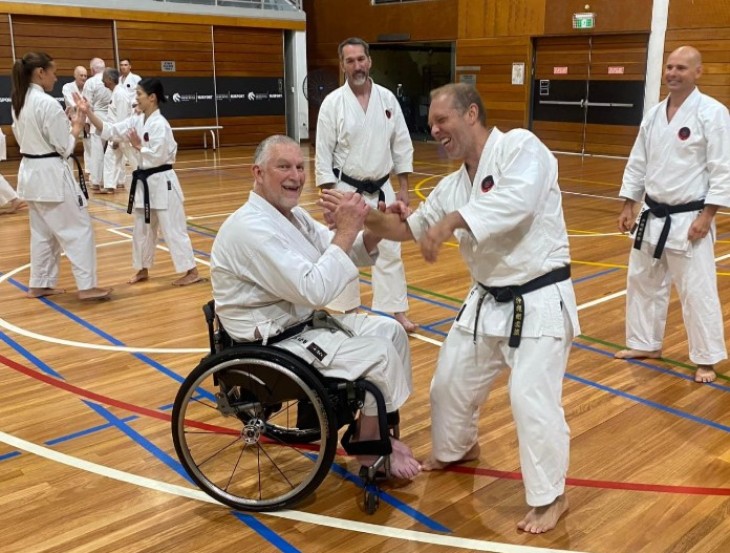
About the Para Sport Collective
Created by Paralympics New Zealand and supported by ACC, the Para Sport Collective brings together groups of pre-high performance Para athletes and coaches from a variety of sports.
The purpose is to develop in their careers by learning from each other and high-performance sport experts.
“Sport has the power to transform the lives of disabled New Zealanders – involvement in Para sport is so important to rehabilitation and wellbeing in general,” says ACC Chief Executive Megan Main.
“At ACC, we want to generate opportunities for disabled New Zealanders – many of our clients included – to participate and compete in Para sport.
“We’re thrilled to be a part of the transformation that’s happening in the Para Sport Collective. I wish the second intake well.”




